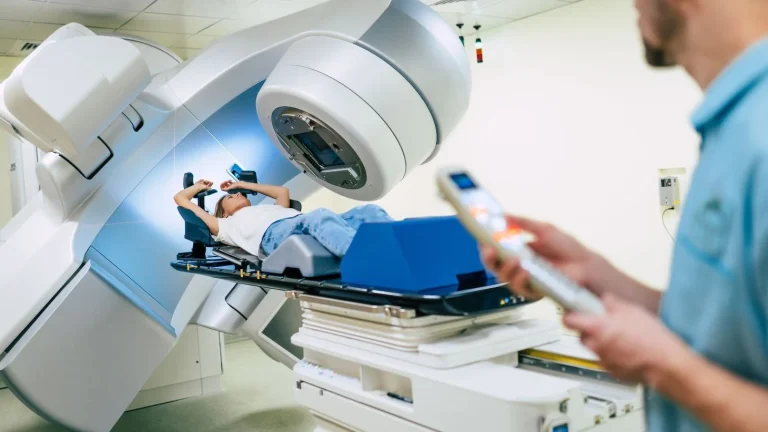The National President of the Association of Radiation and Clinical Oncologists in Nigeria (ARCON), Dr Nwamaka Lasebikan, says collaboration among stakeholders is vital to transform cancer care delivery in Nigeria.
Lasebikan remarked on Wednesday at the 7th Annual General Meeting and Scientific Conference of the association, held at the University of Ibadan, Ibadan.
The conference has its theme “Cancer control in Nigeria: Actions for impacts.”
Lasebikan said fostering Public-Private Partnerships (PPP) could leverage resources and expertise to improve cancer care delivery.
“Importantly, we must build a critical mass of oncology healthcare workers by developing targeted training programmes and educational initiatives,” she said.
She said that despite collective efforts, several challenges continued to impede progress in cancer care in Nigeria.
Key among these challenges, she said, were limited access to early detection and diagnostic services, inadequate infrastructure for treatment, a shortage of specialised oncology healthcare workers, financial constraints hindering patient access to care, and limited cancer research funding and collaboration.
“We are thankful to the Federal Government for providing a central coordinating agency, NICRAT, to facilitate implementation of the nation’s cancer control efforts.
“However, to address these challenges, we must prioritise investment in building diagnostic and treatment infrastructure, advocate for policy reforms to improve funding and access to care, and enhance collaborative research efforts,” she said.
Lasebikan said that the association was willing to partner with academic institutions, international bodies, and private sector entities to facilitate training programmes, including virtual learning platforms, fellowship opportunities, and exchange programmes to address the workforce deficit in oncology.
“I am proud to highlight the impact of the inaugural ARCON seed grants awarded to 10 researchers from diverse fields, which have significantly contributed to advancing cancer research in Nigeria.
“These grants have enabled researchers to explore innovative approaches to cancer detection, treatment, and management, thus, fostering a culture of scientific inquiry and evidence-based practice within our community.
“The outcomes of these research endeavors are already influencing policy changes and improving patient outcomes in various institutions across the country,” she said.
In his remarks, Chief Medical Director (CMD) of the University College Hospital (UCH), Prof. Jesse Otegbayo urged the association to give premium attention to preventing infections and other health challenges that could lead to cancer.
Otegbayo said that UCH was also taking actions to make impacts on cancer control, and commended the Federal Ministry of Health for its efforts in ensuring cancer control.
Also, Vice Chancellor, University of Ibadan, Prof. Kayode Adebowale, urged the participants to take full advantage of all the sessions offered by the conference to develop innovative strategies and improve cancer care.
“The conference will provide a platform for collaboration and learning to make more impacts in cancer control,” he said.
The Chairman of the Local Organising Committee, Dr Adebayo Afolabi, said that the conference was structured to provide a balanced blend of scientific inquiry, skill enhancement and networking opportunities.
He urged all stakeholders to be guided by the vision of having a Nigeria where access to quality cancer care was universal.
“Our programme begins with a community-focused medical outreach, followed by a series of pre-conference workshops aimed at advancing our technical skills.
“I encourage all participants to immense themselves fully in the proceedings, this is a rare opportunity to engage with the latest scientific developments,” he said.
NAN


